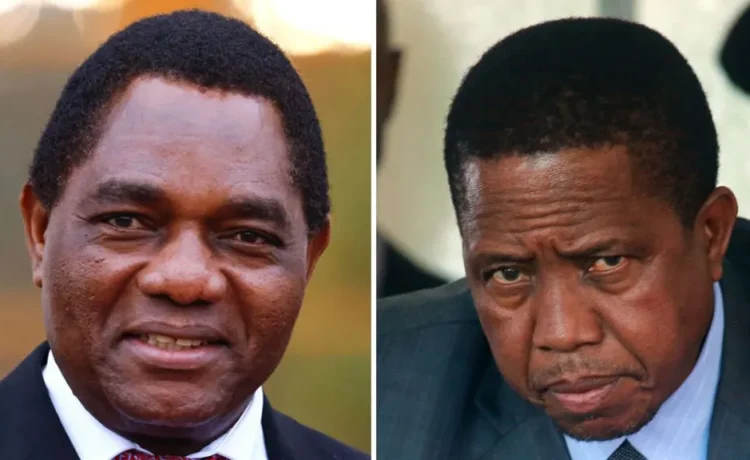The final chapter of Zambia’s former President Edgar Lungu’s life has taken a dramatic turn as the country’s Attorney General obtained a court injunction to halt plans by the Lungu family to bury him in South Africa — a move that has divided opinion and attracted scathing criticism from neighbouring Malawi.
Attorney General Mulilo Kabesha filed the urgent court application on Monday, arguing that the burial of a former head of state is a matter of national interest, not private discretion. The Zambian High Court granted the interim injunction late Tuesday, effectively pausing all burial arrangements abroad pending a full hearing.
The government insists that Lungu, who died earlier this month, must be laid to rest on Zambian soil, in accordance with national laws, constitutional principles, and ceremonial tradition. According to Kabesha, permitting a private burial in South Africa not only dishonours Zambia’s presidential office but also sets a dangerous precedent that undermines state sovereignty and public dignity.
“This is not about politics. It’s about preserving national unity and honouring the institutions of our democracy,” Kabesha said in a statement.
Legal experts have backed the move, citing the 2021 burial of Zambia’s founding president, Kenneth Kaunda. In that case, the courts rejected Kaunda’s personal burial request and ruled in favour of state protocol, affirming that the symbolic weight of the presidency belongs to the people, not the family.
In Brussels, Zambian legal consultant Kingsley Mwansa praised the injunction as “lawful and necessary,” highlighting that under Article 177(5)(c) of the Zambian Constitution, the Attorney General is duty-bound to defend public interest. “This is about more than a burial. It’s about the integrity of national leadership and the state’s right to honour its own,” Mwansa wrote. However, he warned that the legal outcome remains uncertain, given the family’s position and the jurisdictional complexities of involving South African courts.
Meanwhile, in Malawi, the editorial team at Nyasa Times delivered a blistering rebuke to the Zambian leadership, accusing the country of collective failure and political pettiness.
“Zambians, you are stupid, a disgrace,” opened the now-viral editorial. “You’ve let your former president — the man who led you, signed your laws, and commanded your army — be buried like a political orphan in a foreign land. And for what? Pride? Vengeance?”
The editorial lambasted both the Lungu family and President Hakainde Hichilema, accusing them of placing personal grudges and protocol above legacy and national healing.
“President Hichilema failed. He chose cowardice cloaked in protocol,” the piece continued. “And the Lungu family, too, failed to rise above the pain and do what was right for Zambia.”
The article struck a nerve across the region, with some defending the family’s right to control burial arrangements, while others echoed Nyasa Times’ view that Lungu, whatever his faults, deserved a dignified send-off in the land he once governed.
The late president, known for his polarising rule between 2015 and 2021, had reportedly expressed a wish that President Hichilema not attend his funeral. That request, seen by many as a final act of bitterness, was initially respected by the state, which called off official mourning and distanced itself from the ceremony altogether.
The decision sparked public confusion, diplomatic discomfort, and a leadership vacuum that critics say led directly to the funeral fiasco now playing out in full view of the region and the international community.
As of now, Edgar Lungu’s remains are still in South Africa, with no clear resolution in sight. The injunction has thrown burial plans into limbo, raising the uncomfortable question: can a nation so divided in death claim unity in life?
For Zambia, a country proud of its peaceful democratic transitions, this funeral has become more than a send-off. It is a test of institutional maturity, national dignity, and the ability to rise above politics when history calls.













